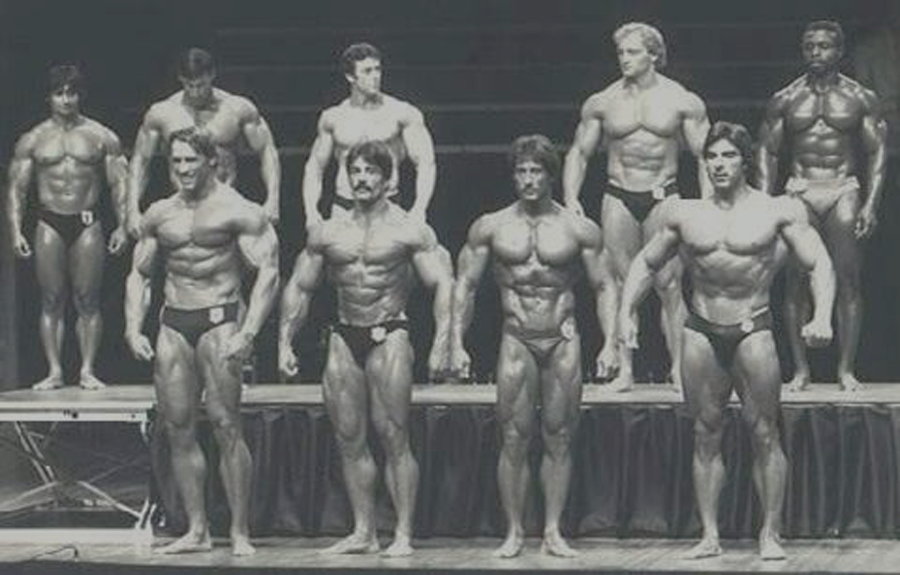Barbie has grown up, moved from Malibu to Memphis and is now CEO of the company. It’s what Ken had always feared.
Just as women have faced objectification in mainstream media for generations— it’s hard to forget those commercials featuring women ravenously eating messy hamburgers on soapy hot rods— today’s marketing campaigns are now turning their attention toward men.
This change in media attention has created a snowball effect in the Adonis Complex, more specifically known by its sub-disorder, muscle dysphoria. According to Harrison G. Pope, a professor of Psychiatry at Harvard Medical School who focuses on anabolic steroid abuse, the Adonis Complex refers to all types of body preoccupations in men, whether it’s constant muscle building or perfecting that “V.”
The Sunday Times in London conducted research unveiling more on the contagious Adonis Complex. The newspaper cited a September study of 2,000 British teenagers that found that, “Eighty-percent [of teens] were unhappy with their looks, a third wanted to lose weight and a quarter would consider plastic surgery.”
Alicia Potter’s Body Obsession and Exercise Addiction, article three of six from Infoplease.com, reports, “The number of men exercising has increased 30 [percent]since 2000, male cosmetic surgery has increased 20 [percent] from 1994 to 1996, and of the eight million Americans with an eating disorder, about one million are men.”
These trends of insecurity are likely the result of sociological agents injected subliminally into our culture, enabling a new status-quo. These agents include everything from society embracing gay rights to the ever-expanding porn industry, from advertisements of ideal models to model father-figures, and from playground rules to religious roles.
The result? How about the hybrid of mid-nineties metrosexualism crossed with a physique of Rambo-like proportion — with a beard.
“There’s a crisis in masculinity,” said Jake Wilson, a CSULB associate professor in sociology with an emphasis on masculinity. He explained why the male identity sustains a unique strife to that of women’s.
“Looking at masculinity as a side of study by identifying [it] as a social process [is important]. Many boys are socialized into a very small box,” Wilson said. “Then they grow up … They don’t know how to express feelings. All they know is anger. There’s nothing natural about that.”
Masculinity is synonymous with American dominant culture. Traditionally, the “macho,” hegemonic ideal has been worshipped. Man isn’t rewarded with power; he must take it.
Kay Hymowitz’s book, “Manning-Up,” recognizes socio-economic shifts toward female dominance as the genesis of “the infantalization of man,” the stealing of his control and his inherent role. Now that women have it all, what else can a man bring to the table?
The male-identity crisis, however, is an apparent, collective vortex of confusion.
“We need representation of men who don’t fall along the lines of the tough, womanizing, aggressive male. But our culture doesn’t celebrate those types of men typically.”
The scramble to redefine masculinity continues to be guided by media and its hyper- saturated falsehoods of manhood.
“The difference today is that it’s ramped up, it’s much more extreme today than it was 30 years ago,” Wilson said.
To the tundra-raised hardcore kid, the all-American family man and the globetrotter, masculinity is no longer definite but left up for interpretation.
“Everyone is entitled to their own measuring system of masculinity, but everyone’s view is shaped through experiences, the media and society,” said Eric Becher, 24, a broadly-built San Diego State graduate with a bachelor’s degree in sociology. “Masculinity is being a big, strong, powerful man, being a leader or an alpha male.”
For some, the idea of the muscular, dominant man still holds precendence, but others say that the image of masculinity changes with the times.
“I think [masculinity today] is more about balancing out, taking in some of those feminine qualities.” Herbert Castro, a 26-year-old international tri-linguist, said. “In a traditional way, I don’t think I could identify with [the idea of masculinity], whatever that is.”
So keep your head up, Ken. You’re not the only one lost in all of this. Barbie was fake, anyways.




